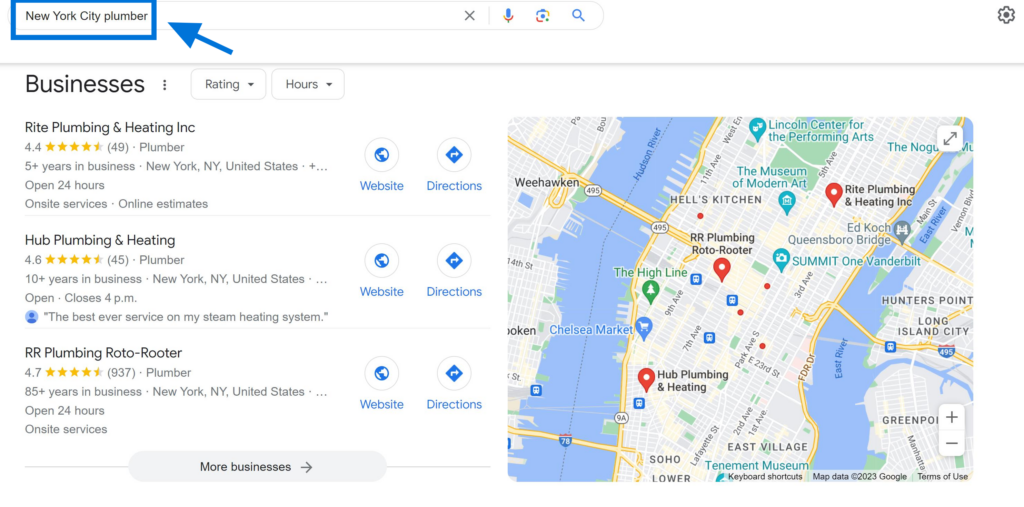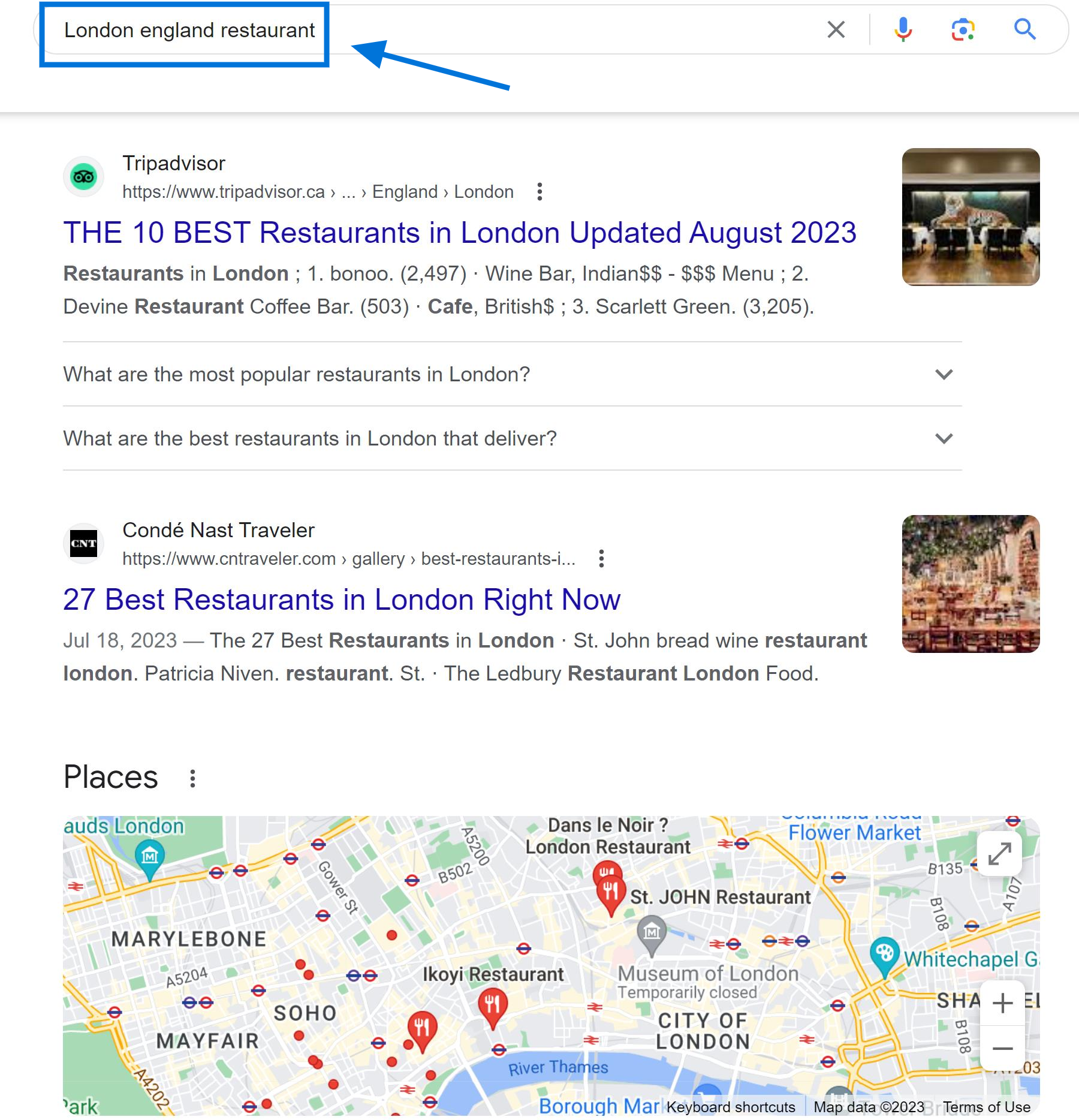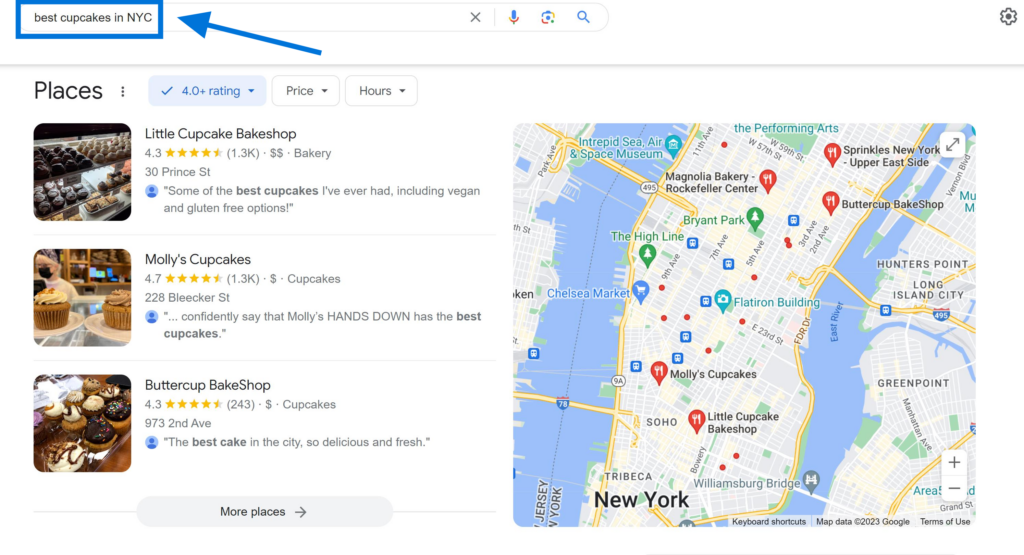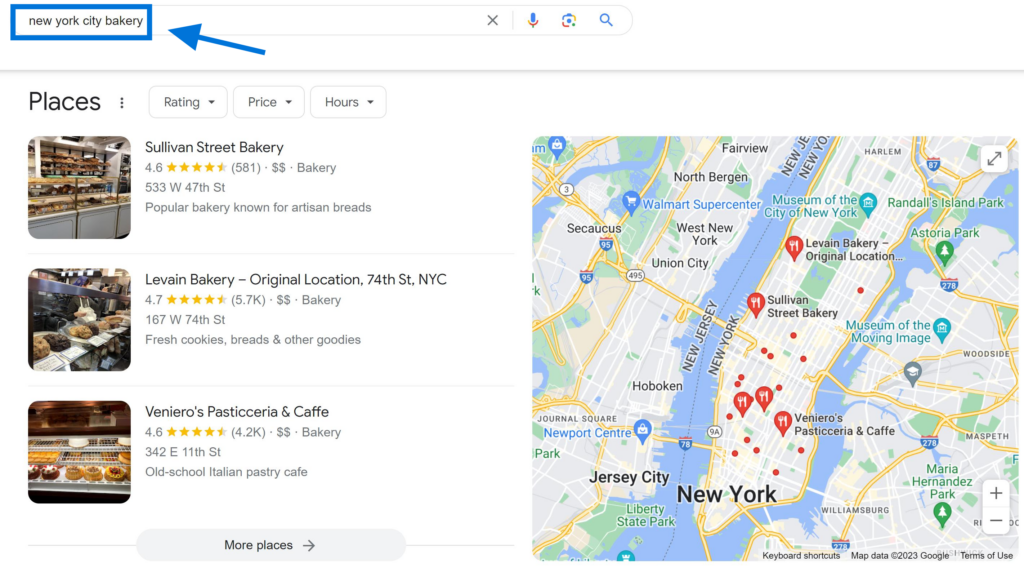Do you want to reach your local audience effectively? Are you struggling to boost your website visibility in specific locations? Geo-targeting keywords can be the solution to your problem.
By implementing geo-targeted keywords, businesses can tailor their content to specific locations, increasing the relevance of search results and reaching their target audience more efficiently.
Using broad geo-targeting or location targeting is crucial. By incorporating specific keywords that are relevant to your target location, you can optimize your website for localized searches. It means that when someone searches for products or services in a particular geographic location, your website will have a higher chance of appearing in the search results.
Geo-targeting also allows businesses to create more personalized and targeted content. By understanding the preferences and needs of different locations, you can customize your website’s meta descriptions and other elements to appeal directly to each specific audience.
- What are Geo-Targeted Keywords?
- How Geo-Targeting Keywords Improve SEO Ranking
- Benefits of Geo-targeted Keywords for Small Businesses
- Best Practices for Geo-Targeting Keyword Optimization
- Tips for Using Geo-Targeting to Increase Conversions
- Additional FAQs on Geo-targeting Keywords
- Conclusion: The Power of Geo-Targeting Keyword
What are Geo-Targeted Keywords?
Geo-targeted keywords are vital to optimizing website content to reach specific local audiences. By incorporating location-specific terms into their web pages, businesses can enhance their visibility in search engine results and attract users who are actively seeking local products or services.
Including geo-targeted keywords in website content serves the purpose of helping search engines understand the intended audience for a particular webpage.
When users perform searches with location-specific terms, search engines rely on these keywords to provide them with relevant results that match their geographical location.
For instance, if someone in New York City is looking for a plumber, they might enter the search term “New York City plumber“ into a search engine.
By including this geo-targeted keyword on their website, plumbing businesses operating in New York City increase their chances of appearing higher on the search engine results page (SERP) when someone performs such a localized search.

Similarly, let’s consider an individual searching for a restaurant in London. They may use the keyword “London restaurant” to find what they want.
Restaurants that have optimized their web pages with this geo-targeted keyword have an advantage over establishments that haven’t specifically targeted their location within their content.

How Geo-Targeting Keywords Improve SEO Ranking
Incorporating geo-targeted keywords provides businesses with several advantages.
Firstly, it allows them to tap into the immense potential of local customers actively seeking products or services nearby.
By aligning their website content with the specific locations they serve, businesses can attract more relevant traffic and potentially increase conversions.
Secondly, using these keywords helps improve organic rankings on SERPs.
Search engines consider various factors when determining which websites to display for a given query, and one crucial factor is relevancy. By naturally including geo-targeted keywords within website content, businesses signal to search engines that they are highly relevant to users searching within those areas.
Moreover, businesses can enhance their visibility in local map listings by optimizing web pages with location-specific terms.
When users search for products or services on platforms like Google Maps, having geo-targeted keywords in the website content increases the likelihood of appearing in these local listings.
Including geo-targeted keywords in page titles and meta descriptions boosts SEO ranking. Search engines prioritize websites with relevant local content for location-based searches.
One crucial factor to consider is the use of geo-targeting keywords. You can significantly improve your SEO ranking by incorporating these specific keywords into your page titles and meta descriptions.
Search engines like Google place a high value on delivering relevant results to users. By including geo-targeted keywords specific to your target audience’s location, you increase the chances of your website appearing prominently in search engine results pages (SERPs).
Using geo-targeted keywords helps businesses compete against larger national or international companies in local search results.
Local businesses often face stiff competition from big players with a broader reach and more extensive resources.
However, by leveraging the power of geo-targeting keywords, smaller businesses can level the playing field and gain visibility among their local audience.
For example:
- A small bakery in New York City may find it challenging to compete with large chain bakeries nationwide. However, by optimizing their website with geo-targeted keywords such as “best cupcakes in NYC“ or “New York City bakery,” they increase their odds of appearing in local search results when potential customers look for baked goods in their area.


Websites that optimize for geographically targeted queries have higher odds of appearing on the first page of search engine results.
Appearing on the first page of SERPs is vital for driving organic traffic to your website. Studies show that most users rarely venture beyond the first page when searching.
By focusing on geographically targeted queries and incorporating relevant keywords into your content, you enhance your website’s visibility and increase its likelihood of ranking higher on SERPs.
Incorporating geo-targeting keywords also helps improve user experience by delivering more relevant search results. When users search for a specific product or service in their area, they expect to find local businesses that can fulfill their needs.
By optimizing your website with geo-targeted keywords, you ensure that your content aligns with the user’s intent and provides them with the information they are seeking.
Using geo-targeting keywords is an effective strategy to improve your SEO ranking and compete against larger competitors in local search results.
Incorporating these keywords into your page titles, meta descriptions, and content increases your visibility on SERPs and delivers more relevant results to users searching for products or services in their area.
So don’t underestimate the power of geo-targeting keywords – they can substantially drive organic traffic to your website and boost your overall online presence.
Benefits of Geo-targeted Keywords for Small Businesses
Small businesses can gain a competitive edge by targeting customers in their immediate vicinity through geo-targeted keywords.
Local customers are more likely to convert into sales, making geo-targeting essential for small business’ success.
When small businesses focus their marketing efforts on specific regions, they can tailor their messaging and promotions to appeal directly to the needs and preferences of local customers.
By understanding their target audience’s unique characteristics and interests, small businesses can create highly relevant content that resonates with potential buyers. This personalized approach increases the chances of converting leads into actual sales.
Geo-targeting enables small businesses to save valuable time and resources by concentrating their marketing efforts where they matter most.
Instead of casting a wide net and hoping for the best, geo-targeting allows businesses to streamline their strategies and allocate resources efficiently.
Small businesses can optimize their advertising budget by narrowing down their target audience based on location and avoid wasting money on reaching people unlikely to convert. This targeted approach ensures that every dollar spent on marketing generates the maximum return on investment.
Incorporating location-specific terms in online content helps small businesses establish themselves as community experts.
When potential customers search for products or services locally, having geo-targeted keywords integrated into website copy, blog posts, or social media, updates increases visibility in search engine results pages (SERPs). It demonstrates that the business understands the local market and is committed to serving its community’s needs. This builds trust among consumers who prefer supporting local businesses over larger corporations.
Small businesses should ensure an optimized Google Business Profile to fully harness the benefits of geo-targeted keywords. This free tool provided by Google allows companies to manage their online presence effectively.
Small businesses increase their chances of appearing prominently in local search results by providing accurate information about location, hours of operation, contact details, and customer reviews.
A well-optimized Google Business Profile enhances credibility and encourages potential customers to visit or contact the business.
Best Practices for Geo-Targeting Keyword Optimization
Conduct thorough keyword research to identify popular local search terms for your business niche.
Utilize tools like Google’s Keyword Planner to gain insights into various geo-targeted keywords’ search volume and competition.
By understanding the specific terms that users in your target area are searching for, you can optimize your website’s content to align with their needs.
Optimize your website’s title tags, meta descriptions, headings, and content with relevant geo-targeted keywords. Incorporate these keywords naturally throughout your website to increase its visibility in local search results.
For instance, if you run a bakery in New York City, ensure that your web pages include phrases like “best cupcakes in NYC” or “top-rated bakery in Manhattan.” This will help search engines understand the geographic relevance of your content and improve its ranking for location-specific searches.
Create separate landing pages tailored specifically to the different geographic areas you want to target. This approach allows you to customize your content based on the preferences and interests of users from each location.
For example, create dedicated landing pages for each location if you have multiple store locations across different cities or states. Include relevant information such as address, contact details, operating hours, and customer reviews specific to that particular area.
Utilize local business directories and online listings to further enhance your geo-targeting efforts. Registering your business on platforms like Google My Business, Yelp, and Yellow Pages can significantly boost your visibility in local search results.
Ensure that all the information provided is accurate and consistent across these directories. This consistency helps search engines validate the credibility of your business information and improves its chances of appearing higher in local search rankings.
In addition to these best practices, it’s essential to regularly analyze the performance of your geo-targeted keyword optimization efforts. Monitor key metrics such as organic traffic from specific locations, region conversion rates, and keyword rankings changes over time.
By continuously refining your keyword strategy based on data-driven insights, you can stay ahead of the competition and maximize your visibility among local audiences.
Remember that geo-targeting keywords are an ongoing process that requires constant monitoring and adaptation to ensure optimal results.
Tips for Using Geo-Targeting to Increase Conversions
Customize landing pages based on the user’s location to provide a personalized experience.
One effective strategy is to tailor your landing pages to match the user’s location. Doing so can create a more personalized experience that resonates with potential customers and increases the likelihood of conversions.
To implement this practice successfully, consider the following tips:
- Identify the user’s location: Utilize geolocation technology to automatically detect a user’s location as soon as they land on your website. This will allow you to deliver content that is specifically relevant to their geographic area.
- Adapt content and imagery: Once you have identified a user’s location, customize your landing page content and imagery accordingly. For example, if you target users in different cities or countries, showcase images that reflect those locations. This helps users feel a connection with your brand and creates a sense of familiarity.
- Highlight local testimonials and reviews: Incorporating testimonials and reviews from customers in the user’s area can significantly boost trust and credibility. When potential customers see positive feedback from people in their own community, they are more likely to convert. Consider showcasing these testimonials prominently on your landing page.
- Tailor language and messaging: Another way to enhance the personalization of your landing pages is by adapting language and messaging based on the user’s location. Use regional slang or references that resonate with locals, making them feel like you understand their needs and preferences.
Incorporate local testimonials and reviews to build trust with potential customers.
Building trust is crucial. One effective way of achieving this is by incorporating local testimonials and reviews into your marketing strategy.
Consider these practices for leveraging local testimonials:
- Collect region-specific feedback: Encourage satisfied customers within each target region or city to leave reviews and testimonials. This will provide potential customers with social proof that your products or services are valued within their community.
- Highlight positive experiences: Select testimonials highlighting specific benefits or features of your offerings that are particularly relevant to the user’s location. For example, if you offer a delivery service, include testimonials from customers who experienced fast and reliable deliveries in the same city or area.
- Display ratings and reviews prominently: Make sure to prominently display ratings and reviews on your landing pages. This helps build trust by showcasing real feedback from satisfied customers. Consider using star ratings, customer quotes, or video testimonials to make them more engaging.
Offer location-specific promotions or discounts to incentivize conversions.
Consider offering location-specific promotions or discounts to further boost conversion rates through geotargeting.
Providing incentives based on the user’s location can create a sense of urgency and increase the likelihood of conversions.
Additional FAQs on Geo-targeting Keywords
How Do I Find Suitable Geo-Targeted Keywords for My Business?
Finding suitable geo-targeted keywords is crucial for effective optimization.
Start by conducting thorough keyword research using tools like Google Keyword Planner, Ahrefs, Moz, or SEMrush.
Look for location-specific terms related to your industry or niche with decent search volume but low competition. Analyze competitor websites in your area to identify relevant keywords they are targeting.
Should I Create Separate Landing Pages for Different Locations?
Creating separate landing pages for different locations can be beneficial, especially if you have multiple physical locations or serve specific areas within a larger region.
These dedicated pages allow you to optimize content specifically for each location, including relevant geo-targeted keywords and location-specific information that will resonate with local customers.
Can I Use Geo-targeting without Having a Physical Store?
Absolutely! Even if you don’t have a physical store, using geo-targeting can still benefit your business.
You can focus on targeting specific regions or cities where potential customers might be located by incorporating relevant location-based keywords into your website content and optimizing meta tags accordingly.
How Often Should I Update My Geo-Targeted Keywords?
Regularly reviewing and updating your geo-targeted keywords is essential to stay relevant and competitive in the ever-changing online landscape.
Keep an eye on changes in search trends, local competition, and shifts in customer behavior. Aim to refresh your keyword strategy at least every few months or whenever you notice a decline in performance.
Can I Use Geo-Targeting Keywords for Paid Advertising Campaigns?
Absolutely! Geo-targeting keywords can be highly effective for paid advertising campaigns, allowing you to reach a specific audience based on their location.
Platforms like Google Ads or Facebook Ads provide options to target users within specific geographic areas, ensuring that your ads are shown to people who are most likely to be interested in your products or services.
Conclusion: The Power of Geo-Targeting Keyword
Congratulations! You’ve now learned about the incredible power of geo-targeting keywords.
By optimizing your website and content with location-specific keywords, you can significantly improve your SEO ranking and attract more local customers to your business.
Remember, targeting the right audience is key. And with geo-targeting keywords, you can do just that!
Start implementing these strategies today and watch your website climb the search engine rankings, driving more traffic and conversions to your business.
Don’t let your competitors steal all the local customers—take advantage of geo-targeting keywords and make sure you’re capturing the attention of those who matter most: your local audience.
